Software Engineering is Doomed
Or is it?
X, formerly known as Twitter, is a grim place for software engineers. The end is nigh, between all the tech layoffs and the coming AI coding boom where all software engineers will be out of a job.
Anthropic’s Claude 3.5 Sonnet, released recently, has been widely reported to be particularly good at coding problems. I can personally attest that it appears to be much better, and frankly gives more explanatory and helpful code snippets than either Llama 3, or all the different flavors of ChatGPT (generally, I had to keep prompting the latter two and usually still never got to answers as helpful).
Of course, this worked best when I gave fairly specific instructions—similar to what a more senior software engineer might give to a junior one. Otherwise, it tended to generate fairly generic or somewhat random code.

Using macro charts wrong
It’s difficult to know what will happen in the future. I don’t necessarily disagree that software engineering as a field might shrink substantially, similar to how farmers are a smaller proportion of our total workforce than in the past.

The thing with that example, though—as with many productivity booms from technology—is the farmers remaining have far higher wages (which is undeniable when you look at developed markets vs. developing, agriculture-heavy markets with a lot of low productivity farming). And people went off to go do other things. Like software engineering.

The thing about what most of these doom pronouncements have been doing is they’ve been using FRED data—which as a former macro hedge fund person, is near and dear to my heart—but using it wrong.
This big “hump chart” that is a feature of most of these posts is job openings on Indeed.com. There are two notable factors here.
Indeed.com postings have themselves been declining. Not as fast as software and IT on the platform, but still declining. Part of that hump detrended will look less impressive.
Software and IT surged in 2022. Let’s be clear, 2022 in particular was a bubble. Just take a look at late-stage (bigger employers) startup valuations. It matches the surge fairly well with a bit of lag in job openings (say, 6 months), which is what you’d expect in terms of hiring surges post mega-rounds.
If you factor in both of these things, you end up with… really not much.


Things you don’t do sure are easy
I’ve joked in the past about NVIDIA and CUDA that all the folks claiming it’s easy to copy it tend to be hardware people (or electrical engineers, who are perhaps the most awful software people you’ve ever met if you’ve ever dealt with firmware code). I’ve written that the software, if anything, is the bigger moat that NVIDIA possesses—not their hardware.
A similar thing here is happening with software engineering.
I suppose Larry Summers will agree that economists are an endangered species once LLMs can do econometrics and create wildly speculative models (hallucination might help there!). Or maybe when they can have Excel errors that give them strong results and change global policy, without which the relationship disappears…
Not to pile disdain/sarcasm on a discipline that I also have some minor foothold in, but I think readers get the point that I suspect Larry Summers would think differently about economics.
Inherently, all of these disciplines require a level of creativity/intuition and critical reasoning that is still hard for LLMs to reliably generate. Well, at least for the latter—the former mostly not at all, unless you start to get into fairly philosophical discussions about the nature of remixing and creativity.
What I actually think will happen
Most of the doom and gloom is about high-wage, developed market software engineering, outside of AI.
Tech, and SaaS (software-as-a-service) is certainly undergoing a necessary correction, but that’s different from a secular collapse of the software engineering discipline.
The actual software engineering market in danger, similar to the creative market, is not the high-end, but the low-end. Generative AI mainly damaged the stock photo and low-end graphic design market, not the high-end.
It's not the Silicon Valley engineer that is in danger. It’s the imported services industry in low-wage markets like India and Bangladesh, which got a revolution from outsourcing and platforms like Fiverr.
“Stock code” or boilerplate, or stuff that’s just a few steps above it, which every software engineer knows well, is what AI generates really well. And, as every senior programmer or frequent answerer on StackOverflow knows, low-level programmers mainly tend to really suck at validating code or finding the best way to do it. Writing still takes time, and editing with feedback does let a more senior individual scale up (even if they grumble about how it’s faster to just do it themselves). This is true in writing code… or writing prose.
The well-educated, continuously learning programmer will be fine. The coding bootcamp graduate? As it always has, depends on the person. Large masses of poorly trained programmers in low wage and productivity countries? Not so much. If AI can handle the simple tasks and do so instantly, with no time zone, cultural barriers, or offshore infrastructure costs, it’s going to pretty easily be a better value proposition for most companies.
The current generation of AI is automating the lowest level jobs, which makes sense given it’s an amalgamation of what’s on the internet—which will be fairly average. In general, human-in-the-loop is going to still be more common, with the human gaining a lot of productivity benefits.




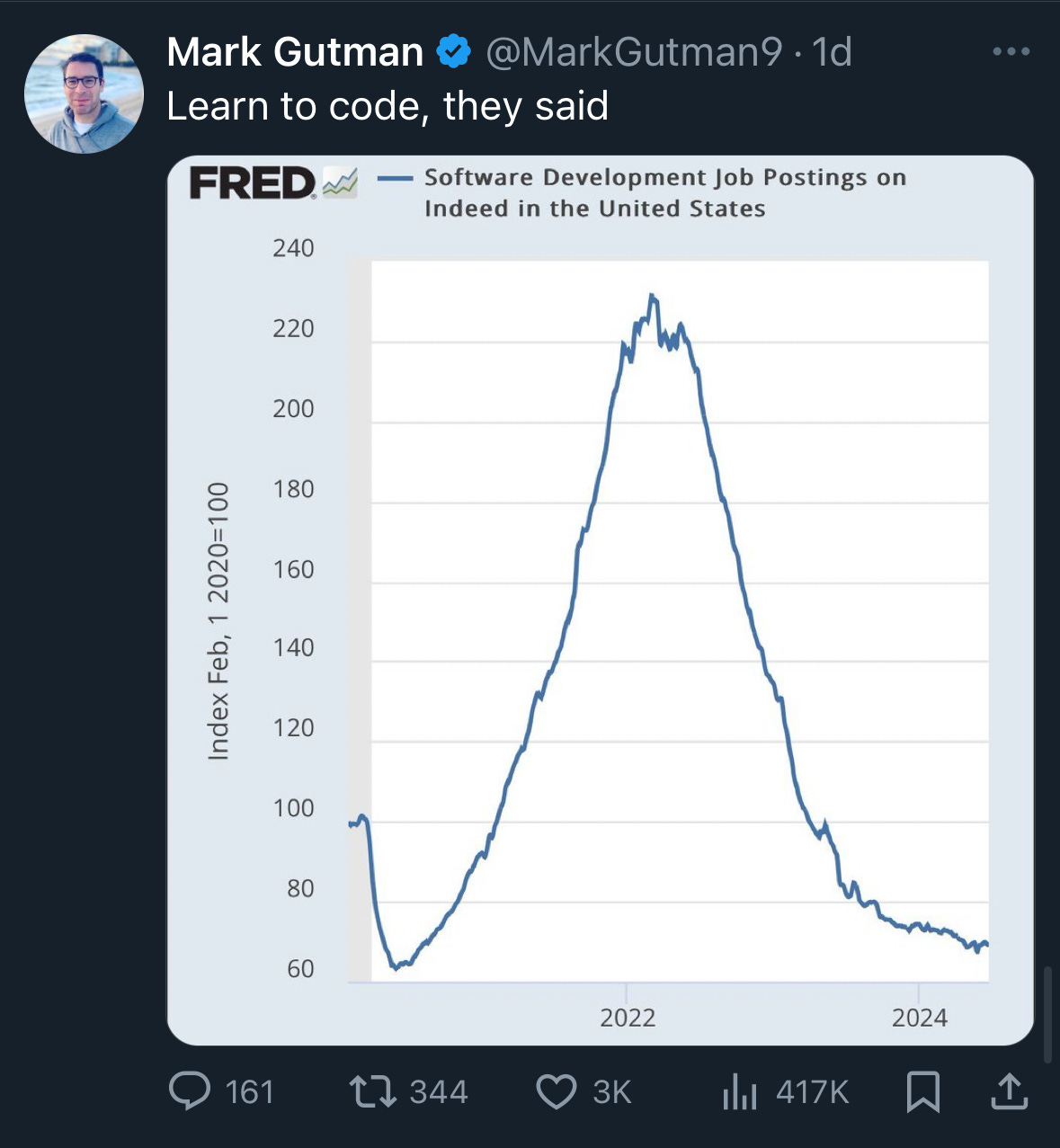
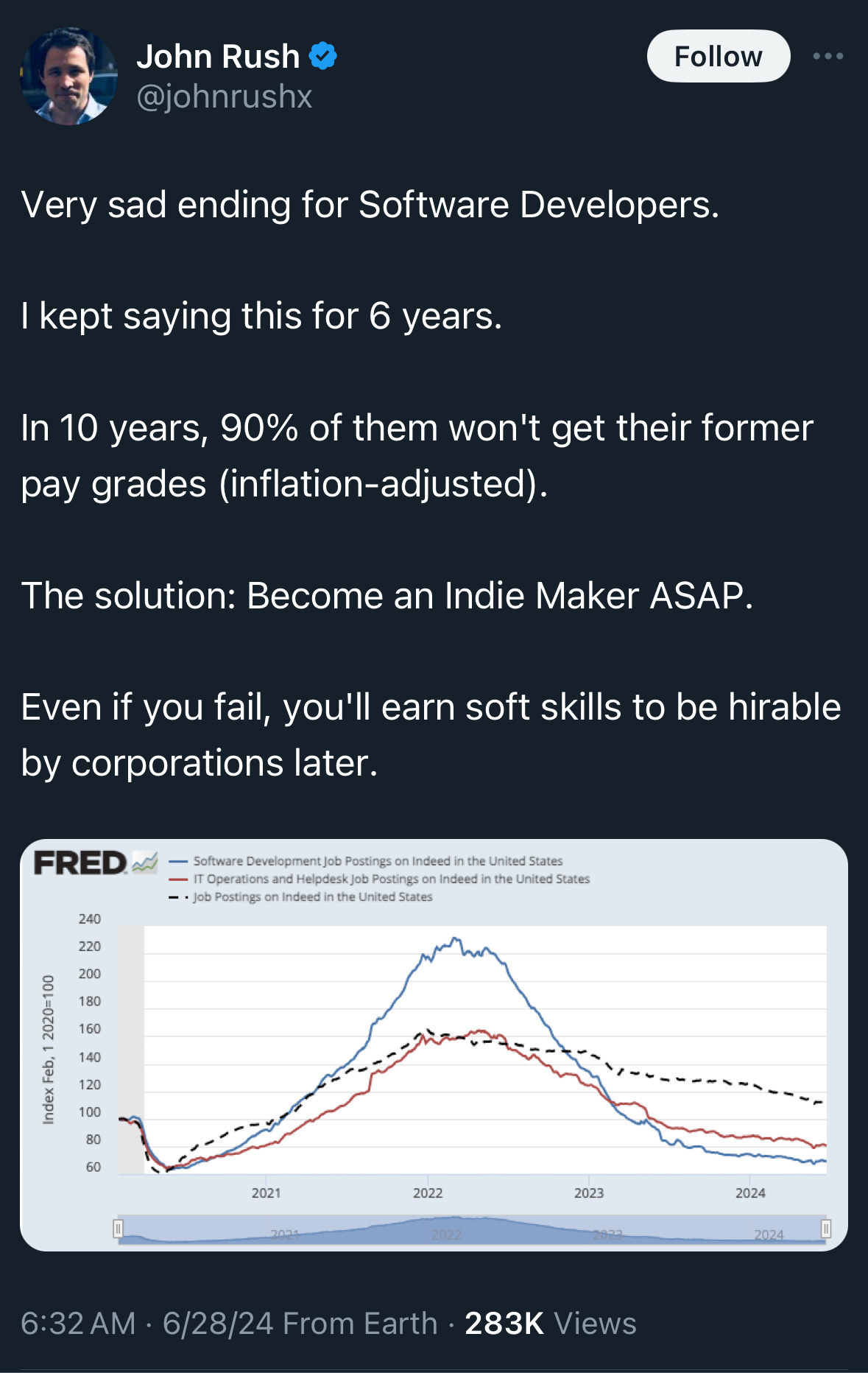
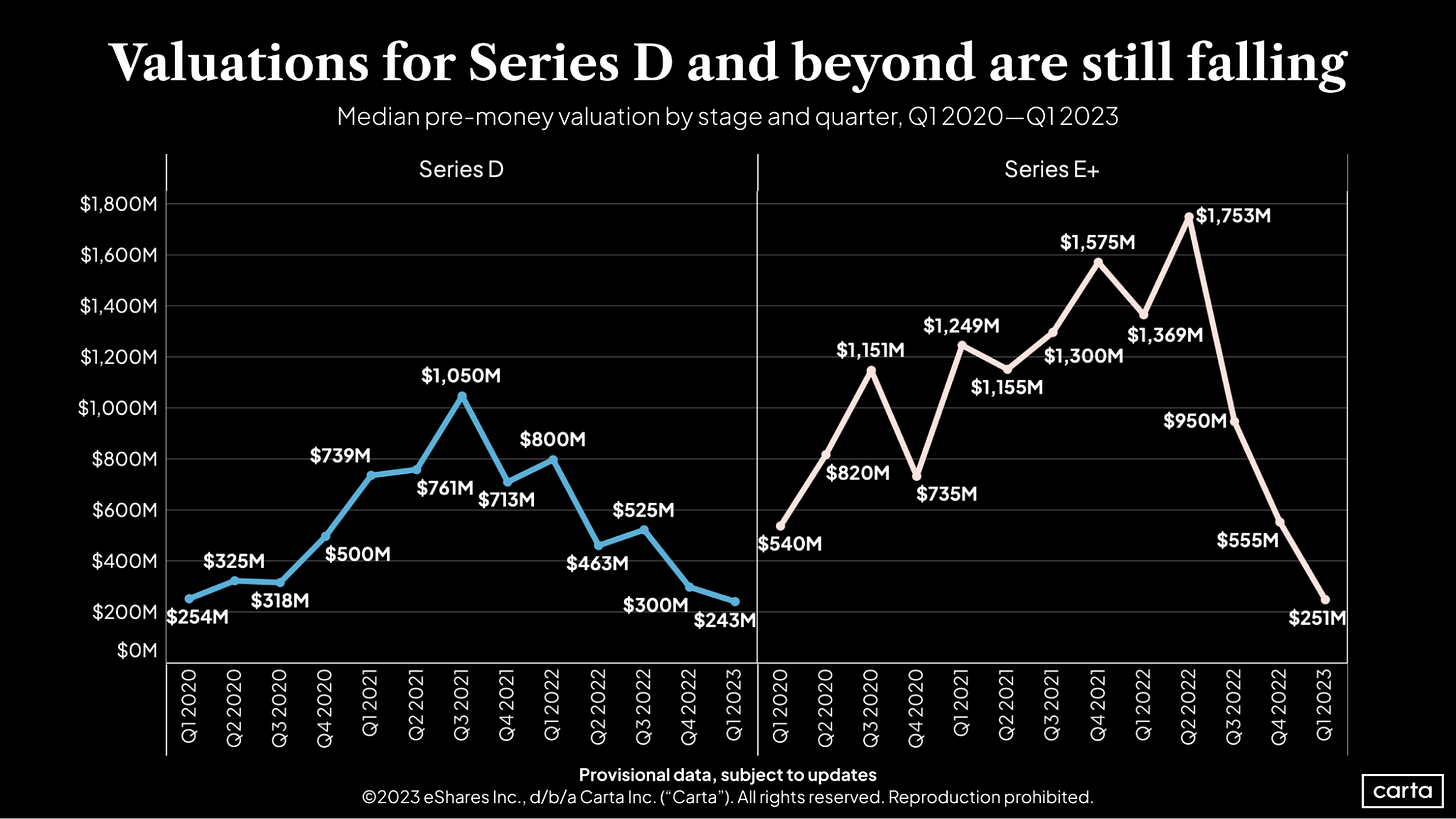
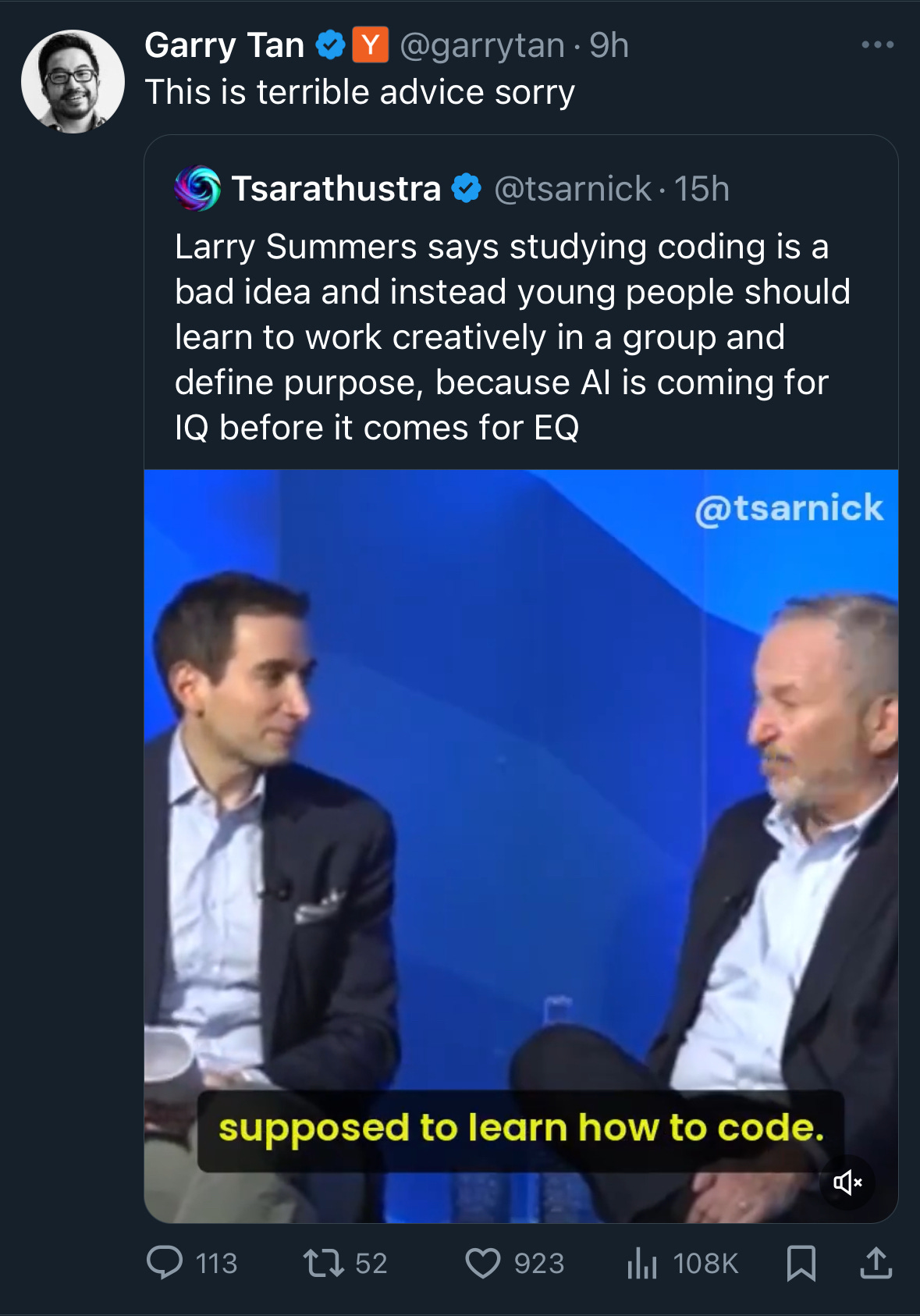
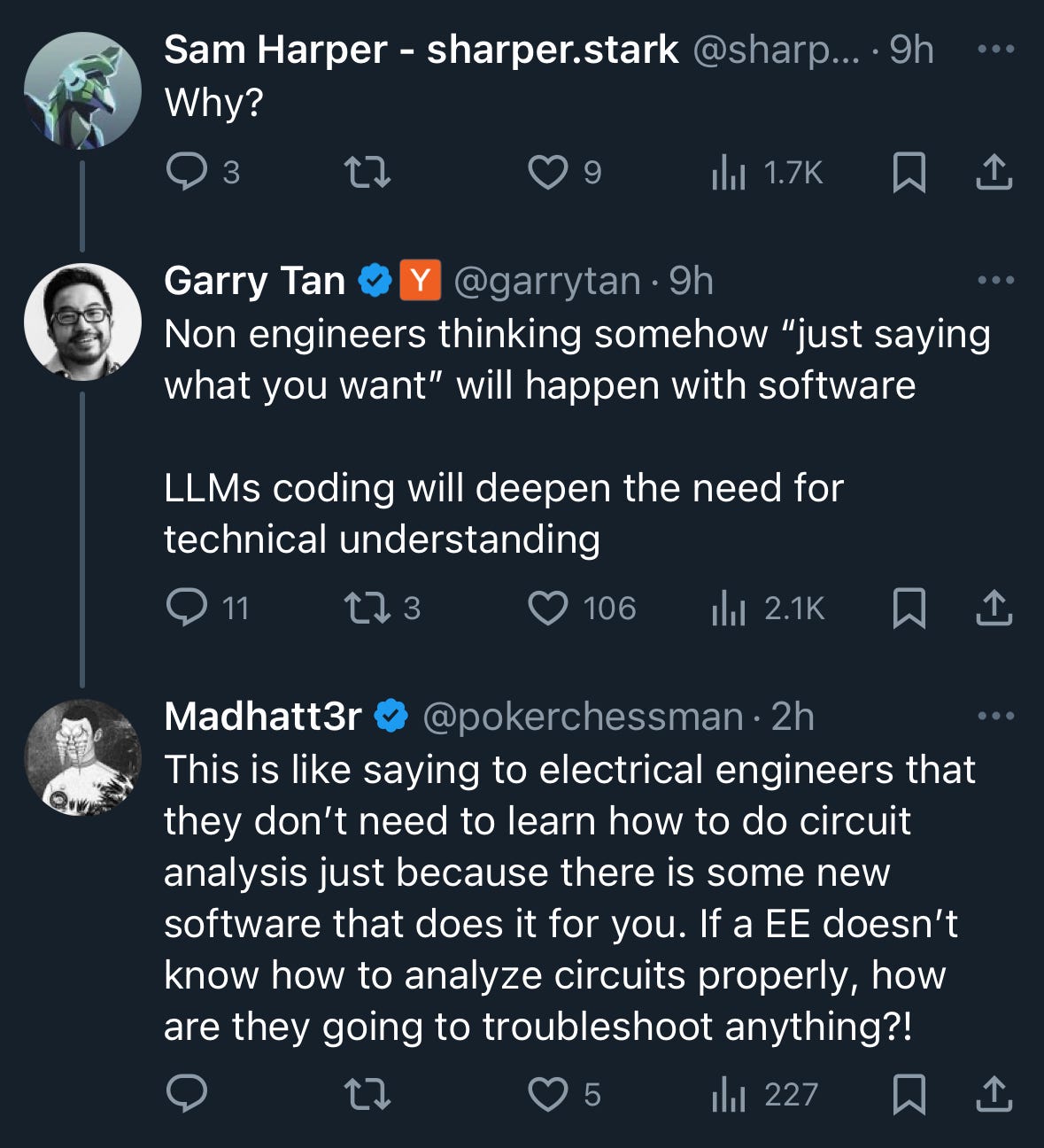
Great article! This is a great place to build a tech enabled service company imo.
Take your standard big software development firm (CTSH) as an example. They have sophisticated client facing “partners” and senior engineers in market and outsource the low end development work to India. Replace that outsourced labor with software!
Lowe cost but more importantly a better product/service for customers because you lose all the communication issues between front end client facing people and delivery people (way more than language issues)